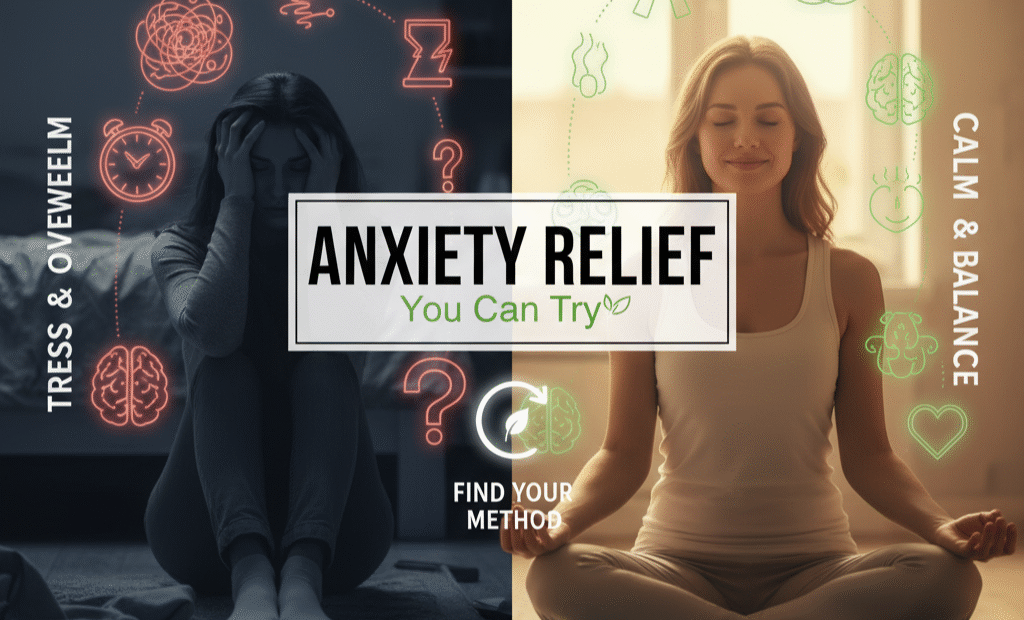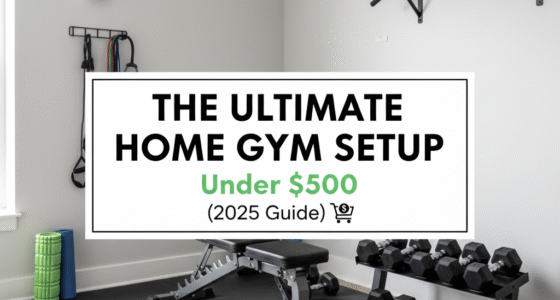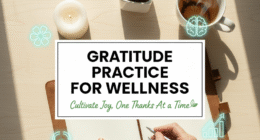Anxiety Relief You Can Try
Anxiety is a natural human response to stress, but when it becomes constant or overwhelming, it can affect your daily life, focus, and overall health. The good news is that there are many proven ways to calm your mind and reduce anxiety — no medication required. From breathing exercises to lifestyle changes, you can use small, practical steps to regain control and feel more at peace.
Understanding Anxiety
Anxiety often appears as racing thoughts, a rapid heartbeat, restlessness, or an uneasy feeling you can’t quite explain. While occasional anxiety is normal, chronic anxiety can interfere with sleep, relationships, and work. The first step to relief is recognizing that anxiety doesn’t define you — it’s simply a signal that your mind and body need rest and balance.
1. Practice Deep Breathing
Deep breathing is one of the fastest and easiest ways to calm anxiety. It helps regulate your nervous system and signals your body to relax. Try this simple technique:
- Inhale deeply through your nose for 4 seconds.
- Hold your breath for 4 seconds.
- Exhale slowly through your mouth for 6 seconds.
- Repeat for 2–3 minutes until you feel calmer.
This method, known as the “4-4-6 technique,” can lower your heart rate and quiet racing thoughts.
2. Try Mindfulness Meditation
Mindfulness meditation teaches you to observe your thoughts without judgment. Instead of fighting your anxiety, you accept it and let it pass naturally. Even five minutes of daily mindfulness can improve focus and reduce worry. Sit comfortably, close your eyes, and notice your breath. When your mind wanders, gently bring it back to the present moment.
3. Get Moving
Physical activity is a natural anxiety reliever. Exercise releases endorphins — your brain’s feel-good chemicals — and reduces muscle tension. You don’t need to hit the gym; a short walk, dancing, or light stretching can do wonders. Try moving for at least 20 minutes a day to release stress and improve your mood.
4. Limit Caffeine and Sugar
While caffeine and sugar give you a quick boost, they can also increase heart rate and trigger anxious feelings. Replace sugary snacks and coffee with herbal tea, water, or balanced meals rich in fiber and protein. A stable blood sugar level helps your mood stay calm and steady.
5. Practice Gratitude
Gratitude helps shift your focus away from worries and onto what’s going well in your life. Each day, write down three things you’re thankful for. This simple act can rewire your brain to find positivity even during stressful times, helping you feel more grounded and content.
6. Connect with Others
Talking about your feelings can make a big difference. Sharing your worries with a trusted friend, family member, or therapist helps release emotional tension. You don’t have to face anxiety alone — human connection is one of the most powerful ways to heal and find relief.
7. Get Enough Rest
Lack of sleep can make anxiety worse. Try going to bed and waking up at the same time every day. Avoid screens an hour before bed and create a calming nighttime routine — such as dimming the lights, stretching, or listening to soft music. A well-rested mind handles stress much better.
8. Ground Yourself in the Present
When anxiety spirals, grounding techniques can bring you back to reality. Try the “5-4-3-2-1” method: name five things you can see, four you can touch, three you can hear, two you can smell, and one you can taste. This exercise helps you reconnect with the present moment and reduces anxious thinking.
9. Limit Screen Time and News Intake
Constant exposure to news or social media can overwhelm your mind with negative information. Schedule digital breaks throughout the day and spend more time outdoors or engaging in offline hobbies like reading or journaling. Disconnecting helps your mind reset and reduces information overload.
10. Seek Professional Help When Needed
If your anxiety feels uncontrollable or interferes with your daily activities, consider talking to a mental health professional. Therapy can help you understand your triggers and develop personalized coping strategies. Remember, seeking help is a sign of strength, not weakness.
Conclusion
Anxiety may not disappear overnight, but consistent small steps can lead to lasting relief. From breathing deeply to practicing gratitude, every action you take helps calm your body and mind. Be patient with yourself — progress happens gradually. With time and care, you can build a calmer, more balanced life free from the grip of anxiety.









